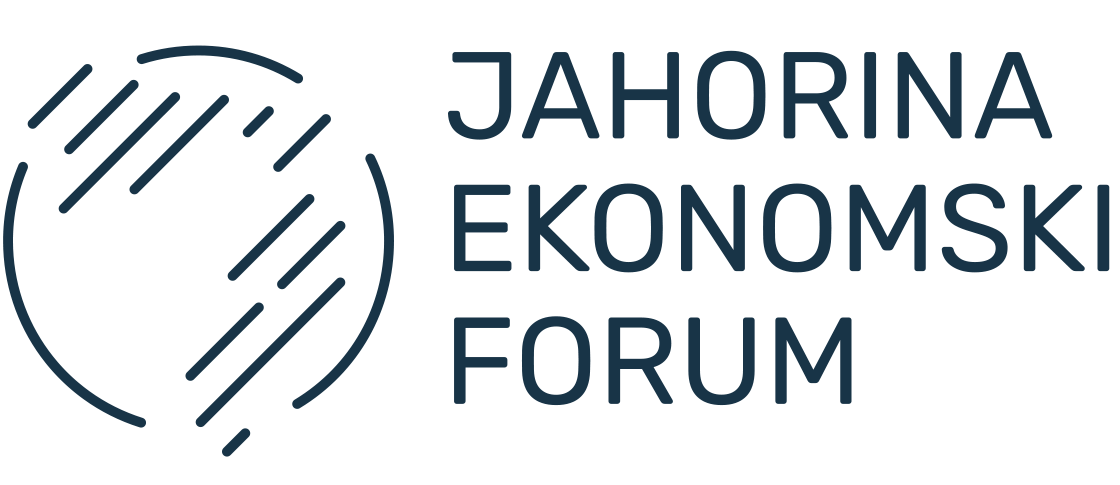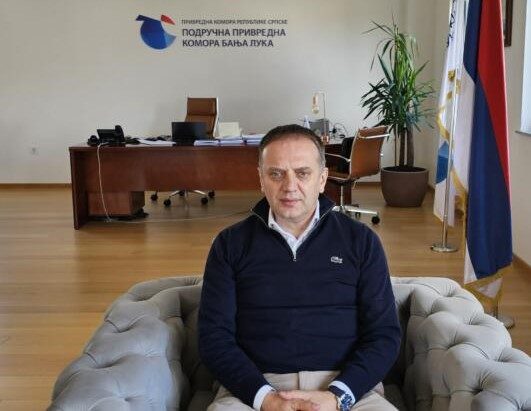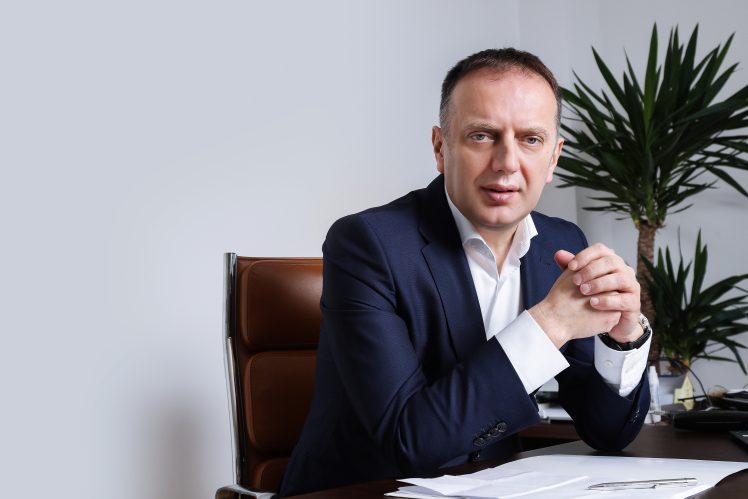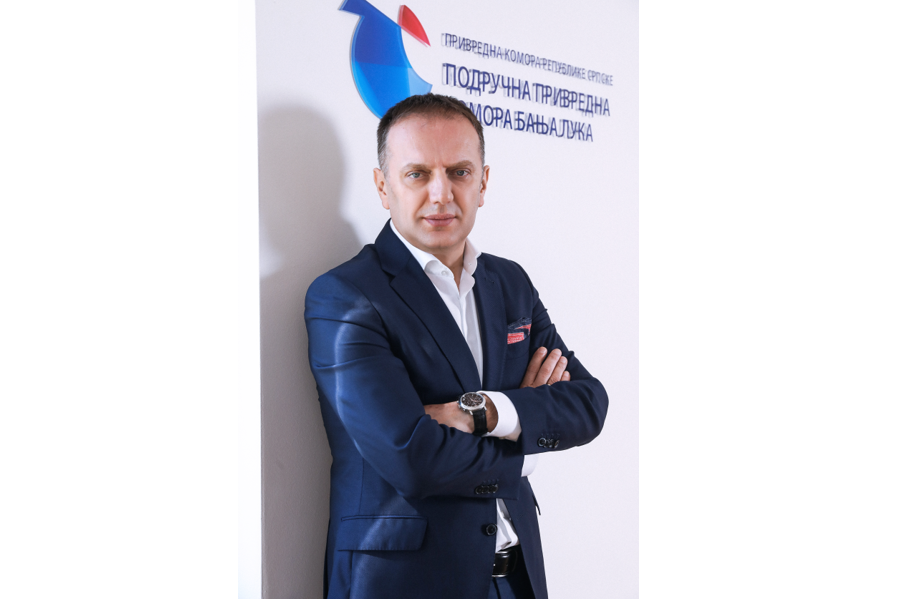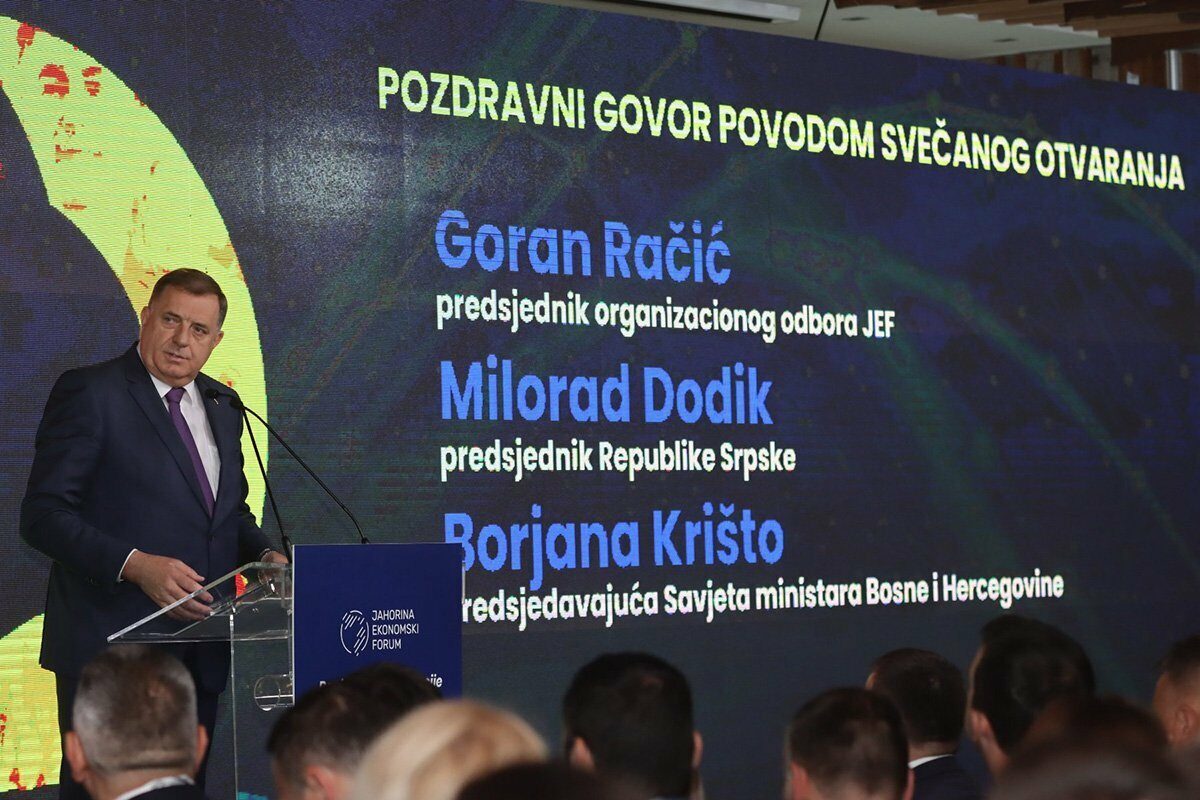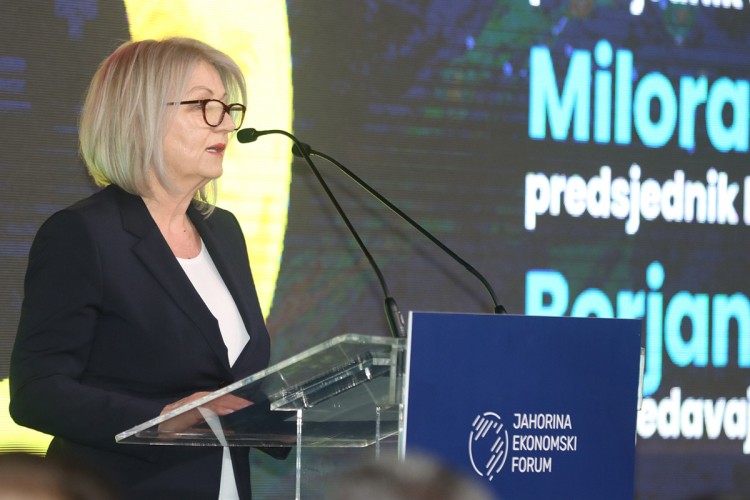“Jahorina Economic Forum” – Promoter of Business Potentials and Resources
“Jahorina Economic Forum – Long-term Development Directions” is one of the most prestigious regional events where representatives from government institutions, companies, and experts engage in discussions to reach relevant conclusions on how to improve public policies, the economy, and the quality of life of citizens of Bosnia and Herzegovina, as well as the region.
This year’s event will take place from May 14th to 16th at Jahorina, and according to the president of “Economic Forum”, organizer of “Jahorina Economic Forum”, and the President of the Regional Chamber of Commerce Banja Luka, Goran Račić, preparations are in the final stages. The organization is being carried out by a top-notch team of experts, and a record number of visitors is expected.
-There is less than a month left until the start of the event. Can you tell us in which phase the preparations are?
Račić: The final preparations for the “Jahorina Economic Forum” are currently underway. We have already completed 95 percent of the organizational part. Regarding the panels and participants, we are still awaiting confirmation from some panelists from abroad, and we expect to have the complete program finalized by the end of this month, including the schedule and the names of all participants.
-Compared to last year’s Forum, which was exceptionally well attended and positively evaluated by participants and visitors, how many participants do you expect this year and how many panel discussions?
Račić: We will have 15 panels. At the central panel, we expect regional leaders and a lecture by Professor Dragan Primorac from Zagreb. As for the participants, there will be around 100 panelists and moderators, while the number of visitors is expected to be between 600 and 650 people. We are somewhat limited by the accommodation capacity and the space provided by the hotel “Termag,” where the Forum takes place. In previous years, we have set high standards and goals for the production, organization, and everything else related to the organization of this event, and we can confidently say that no forum in the region has yet reached our level. In addition to the program, which will be broadcasted by the Radio-Television of the Republic of Srpska this year, the plenary and ceremonial opening, all panels are recorded and broadcasted via our YouTube channel. Furthermore, since last year, we have introduced the practice of recording “podcasts” with key speakers, which are then broadcasted on our YouTube channel. This has proven to be a good practice. People who are unable to attend in person will have the opportunity to follow what is happening at Jahorina through our social media channels.
-What will be this year’s central theme and what might be the most interesting?
Račić: The central panel is related to the main theme of the forum “Western Balkans and Long-term Development Directions.” Last year, we also focused on the Western Balkans and regional integrations. We are aware that today the entire region, and therefore Bosnia and Herzegovina as well, cannot achieve the desired level of economic development without regional integration. We need to concretize certain regional processes, primarily in creating a unified regional market, in terms of border crossings, flow of goods, human resources, and human potentials. So, regarding labor, we need to create conditions for workers to be able to be employed freely and work throughout the Western Balkans. On the other hand, we must ensure that all certificates, which accompany the flow of goods and diplomas, are recognized among all countries in the Balkans, which would create a significant precondition for development. We have a practice of being divided among ourselves and being limited by the existence of borders. Previously, we had one border that was sometimes associated with the former Yugoslavia, while today we have six borders. For example, we have a situation where the flow of goods between Banja Luka and Belgrade takes two to three days. We know that the cost of transportation significantly contributes to the cost structure of a product, and if we could create a paperless transport of goods and if we could facilitate easier flow of goods at the border, and recognize each other’s certificates, we could significantly reduce transportation costs, and thus reduce the cost of certain goods sold in our market.
-The forum brings together business leaders from the region, making it significant for the entire region. What are the greatest benefits achieved so far in terms of business cooperation?
Račić: As you mentioned, we gather people from about 20 countries every year. All leading regional leaders have the opportunity to get to know each other, to exchange experiences, and on the other hand, many conclusions that we have formulated at the “Jahorina Economic Forum” in previous years are now an integral part of some official documents present in the official institutions of Republika Srpska and Bosnia and Herzegovina. I will mention that last year we initiated an idea aimed at improving the position of young people, which relates to the purchase of their first real estate with exemption from paying VAT. Our initiative was accepted by the officials of Republika Srpska, and two to three months ago, the Minister of Finance of Bosnia and Herzegovina, Srđan Amidžić, immediately after taking office, concretized that idea, and preparations are already underway for certain changes in the law, which would allow the first real estate in Bosnia and Herzegovina to be purchased by young people without paying VAT. So, they now have an ambition to negotiate with all authorities at the level of Bosnia and Herzegovina to implement this idea, and I expect that it will already be in the parliamentary procedure during this year. It is a concrete idea aimed at helping young people at the age when they decide whether to leave this country or to permanently bond with the place where they were born and the country where they live.
This idea certainly needs to prevail in favor of them staying in this area where they were born and where they live, and in this way, it will certainly influence the decision of many young people, when they are at a certain age and at a crossroads whether to leave these areas or stay. We are aware that migrations and the economic situation have influenced the trends that many young people from almost all Western Balkan countries have left in the past period seeking better places where they can achieve certain business and life ambitions, but we see that in the last few months, we also have the return of young people, although it has not been sufficiently presented in the media and in other ways.
-What other significant topics will be represented at the Forum?
Račić: Since we had the ambition to address the long-term development directions of our region, we have planned a panel that deals with demographics and migrations. We cannot have serious long-term development programs if we do not monitor our demographics and trends. Surely, in this part, we will have competent speakers from the entire region, and we will try to support certain trends with statistical data. This means we will discuss where we are today in terms of population, the issue of natural increase, and what we can expect in five to 10 or 20 to 30 years. The fact is that some professions that are interesting today will no longer be in focus in 20 or 30 years, and the situation will change over time, reflecting the needs of the economy. If we look at artificial intelligence, we are talking about something that is inevitable today and is an integral part of our lives, a challenge for everyone. In this context, we will have a panel featuring speakers such as the director of the National Institute for Artificial Intelligence from Serbia, then young entrepreneurs dealing with robotics and creating certain applications and software solutions that support artificial intelligence. Also, we expect the vice president of the Huawei Group to speak on the topic of artificial intelligence. The theme is inevitable, and in the coming years, it will be increasingly present in our daily lives. Therefore, we must “draw out” certain directions in which we need to move. If we do not have an adequate approach to the application of artificial intelligence, it can have negative and unwanted effects.
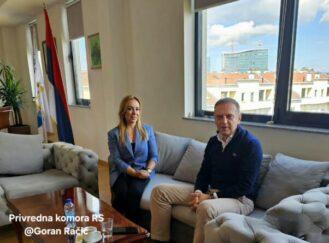
– How appealing are we to foreign investors?
Račić: As for our country and the interest of foreign investors, we cannot be satisfied with the presence of foreign investors due to certain political tensions. Unfortunately, we are not attractive to foreign investors because of these tensions. However, it is encouraging that all those foreign investors who have been present in Bosnia and Herzegovina for the past 10 to 15 years have significantly increased their production and expanded the scope of their business. So, in a way, this is an indicator and proof that there is a positive environment here. Regarding investment development, on the other hand, foreign investors are committed to investing in labor and certain projects in our area, which is very good. Today, when talking about foreign investments, the first question is whether there is a sufficient number of labor force. Unfortunately, we will have to change and adapt our legislation, which deals with the issue of labor force, to the needs of the market. We see that Croatia has abolished all permits that previously prevented the import of labor force because they simply realized that they have nothing more to protect. Also, the number of people registered with our Employment Bureau is not realistic. Although this number is much lower today compared to the past five or 10 years, these people are mostly not active job seekers, and therefore, legislation should be adapted to the real interests and needs of the economy. The need of the economy today is to try to quickly, efficiently, and easily obtain satisfactory labor force in those markets that currently have that labor force. So, the first question of foreign investors is whether we have enough educated, trained, and quality labor force. If we can provide that, there would certainly be many more investments.
– Considering the aforementioned, can we add that the “Jahorina Economic Forum” serves as a promoter of our country’s potentials and resources, while also highlighting the deficiencies that need to be addressed to create a better business environment?
Račić: I agree. We have always endeavored to promote our potentials and resources. This year, we will also present our tourism potentials, discuss destination management and tourism management. Agriculture and food production are also on the agenda, as these have become global trends. We aim to showcase our successful managers and practices as examples for all of us, while also pointing out problems, shortcomings, and the need for regulatory changes or new regulations that should facilitate our development and promotion.
– Recently, a delegation from Hungary visited Republika Srpska. Political relations should contribute to economic cooperation. What is your perspective on this?
Račić: Cooperation with advanced and developed countries is always welcome. Hungary is a developed country that has shown interest in cooperating with Republika Srpska. Back in 2008, during the global economic crisis, they decided to diversify their foreign trade to other markets as they were overly dependent on the European Union, with nearly 60% of their foreign trade conducted within the EU. They realized that relying solely on one market could be economically detrimental, so they are trying to expand their cooperation to other regions, including the market of Republika Srpska and Bosnia and Herzegovina.
It’s beneficial that, in addition to economic cooperation, we also have good political understanding between the official political elites of Republika Srpska and Hungary. This lays the groundwork for development and cooperation, and certain agricultural projects are welcome. Several successful projects involving the import of equipment from Hungary have already been realized, and this cooperation is expected to expand further in the future, which is positive. The interest of our entrepreneurs in purchasing equipment from Hungary is quite satisfactory, especially considering that a significant portion of this equipment is provided through grant funds approved by the Hungarian government through its fund.
– You recently returned from Greece, where a meeting of the Board of Directors of the Greek-Serbian Chamber of Commerce was held in Thessaloniki. What agreements have you reached?
Račić: We are trying to expand cooperation with Greece. There is interest on the Greek side for collaboration. The trade exchange between Greece and Republika Srpska is at a relatively low level, around 60 million euros, and we believe there is potential and interest to increase it. In this context, we had discussions with our partners and colleagues from Greece. One piece of good news is that we were guests at the tourism and economy fair in Thessaloniki, where our businessmen were provided with free booths for presentation and business purposes. That is certainly a positive step, and at the moment, we are negotiating for a portion of hotel accommodation for our businessmen to be financially covered by the hosts, which would be very interesting and attractive for our businessmen. We have already surveyed some companies that have shown interest, and I hope that by this fall, we will be able to lead the first delegation of businessmen from Republika Srpska to Thessaloniki for the fair, where they will have the opportunity to talk to interested partners and create conditions to expand not only to Western European markets, where we export about 70% of our domestic products but also to the Greek market, which is very interesting. It is a market that, in addition to its own consumer base, has a large number of tourists, so it is certainly a very significant consumer base to consider.
– A visit to Italy, Trento region, is planned. In what aspect do you plan to establish cooperation with their Chamber of Commerce?
Račić: About 20 days ago, we hosted a business delegation from the Trento region, and they showed interest in certain products from Republika Srpska, primarily fruit, specifically berries like blueberries, raspberries, and even aronia. We agreed that at the end of May, a delegation of blueberry, raspberry, and other fruit producers will visit the Trento region. Along with the Chamber of Commerce delegation, representatives of the Ministry of Agriculture would also participate, and during that time, we agreed to sign a Memorandum of Cooperation between our Chamber of Commerce and the Chamber of Commerce of the Trento region, which should serve as the basis for future projects.
– Besides yourself as the president of the Organizing Committee of the “Jahorina Economic Forum,” who else is involved in organizing such a representative event?
Račić: We have strong support from our partners, primarily involving individuals from agencies responsible for social media promotion, developing complete media and marketing content. On the other hand, we have an agency assisting us with guest accommodation because we need to accommodate over six hundred people, including participants of the forum itself, which involves organizing their transportation, flights, transfers from the airport to the hotel… Regarding the individuals creating specific program packages, our partners from the Economic Institute Belgrade, Chamber of Commerce of Vojvodina, and Chamber of Commerce of Republika Srpska significantly assist in that aspect. So, there is a broad spectrum of people involved in this endeavor.
